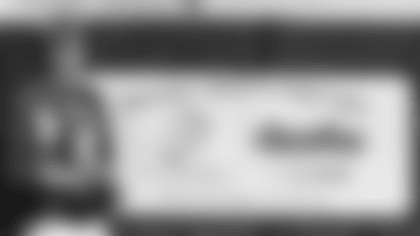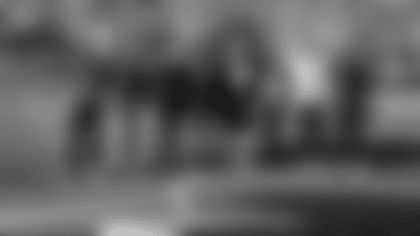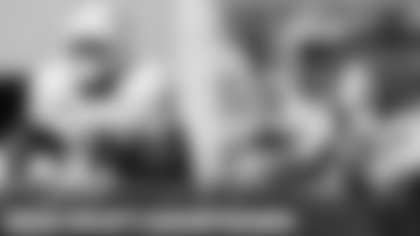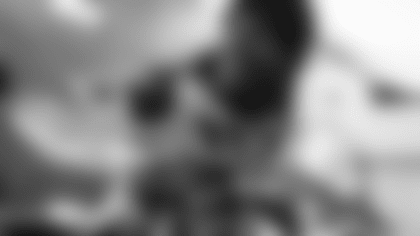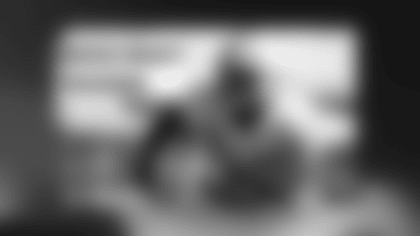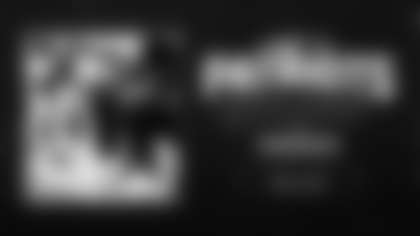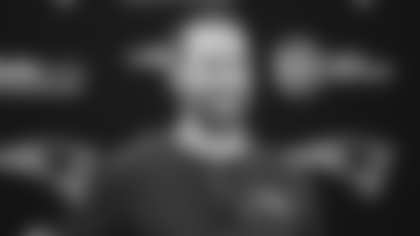DENVER – There was nothing but green as far as Wes Welkercould see.
On third-and-three from their own 28-yard line, with just over four minutes remaining, the score tied at 17, Welker and the Patriots offense were marching on what appeared to be the game winning drive.
Denver's safety, expecting a short pass, dropped down toward the 30, leaving some 70 yards of open field behind him and no other teammate to protect it. Welker, a good two steps ahead of the Broncos defender covering him, saw this and his eyes widened. He was supposed to run a short comeback-route and pick up the first down. But with all that real estate in front of him, the obvious adjustment was to keep running.
How many times have you heard about a quarterback and his receiver improvising – just like this – because they both read the defense the same way?
As Welker streaked along the left hash marks, clearly out of reach of any Broncos defender. He swiveled his head back to his right, expecting to see Tom Brady'spass sailing toward him.
It was, only the ball was low and behind Welker and it ricocheted off his right heel. Welker was Brady's intended target all along, but the QB threw to the spot where he expected his receiver to be because Brady hadn't read the adjustment the way Welker had.
If he had, the Patriots would have likely won the game on that play.
Welker, it turned out, was both right and wrong at the same time, and afterward, he took full responsibility for his actions.
"I can't really go out there and freelance like that," he said contritely. "[Brady's] expecting me to take so many steps … I can't put him in a spot like that. I have to make sure we get the first down and then go from there."
"I was expecting him to do something different, he was expecting me to do something different … that's why it looked the way it looked," Brady added. "We just gotta get on the same page."
There were other times, too, when Brady and his receivers could have made plays that would have changed the course of the game. Earlier in the fourth quarter, for instance, on a second-and-seven from the Denver 47, seldom used tight end Michael Matthewswas uncovered as he raced toward the Broncos end zone on the right side of the formation. However, wide receiver Randy Moss, to the left, had also beaten his man. It was Moss whom Brady saw first, however, yet Brady hesitated to throw, he then spotted Matthews and launched the ball deep downfield.
As the ball arrived, Matthews was at the goal line and stretched out his arms to make the catch. But Brady's moment of indecision allowed safety Brian Dawkinsto make up the distance between himself and Matthews and bat the ball away at the very last second. Had Brady spotted Matthews earlier, the play might've resulted in a touchdown.
And in the first half, Brady had a wide open Moss heading toward the left side of the end zone on a deep corner route. All Brady had to do was float the ball to Moss, but he overshot his receiver by at least five yards.
"It's just poor execution ... That's what it comes down to," Brady lamented. "There were plays to be made all day. We just didn't make them."
Despite having to punt after the Welker miscommunication, New England got the ball back by forcing Denver into a three-and-out punt. But following the 2-minute warning, Brady was strip-sacked by Broncos defensive lineman Vonnie Holliday.
The defense again did their job by forcing a Denver punt and sending the game into overtime. But New England's offense never had another chance to make up for their earlier mistakes. The Broncos won the coin toss, marched into Patriots territory and kicked the game-winning field goal.
"In the end," Welker concluded, "it just came down to execution. We didn't execute and they did. And that was the difference."


